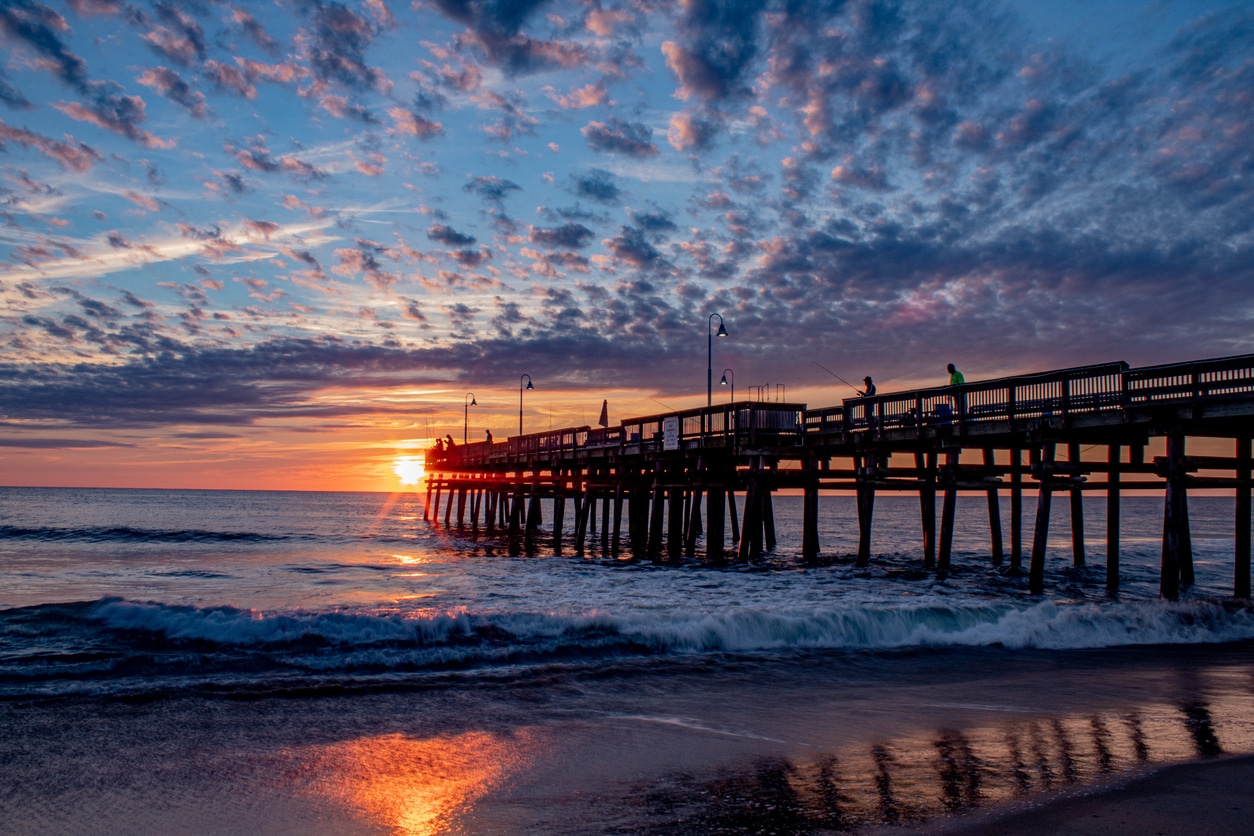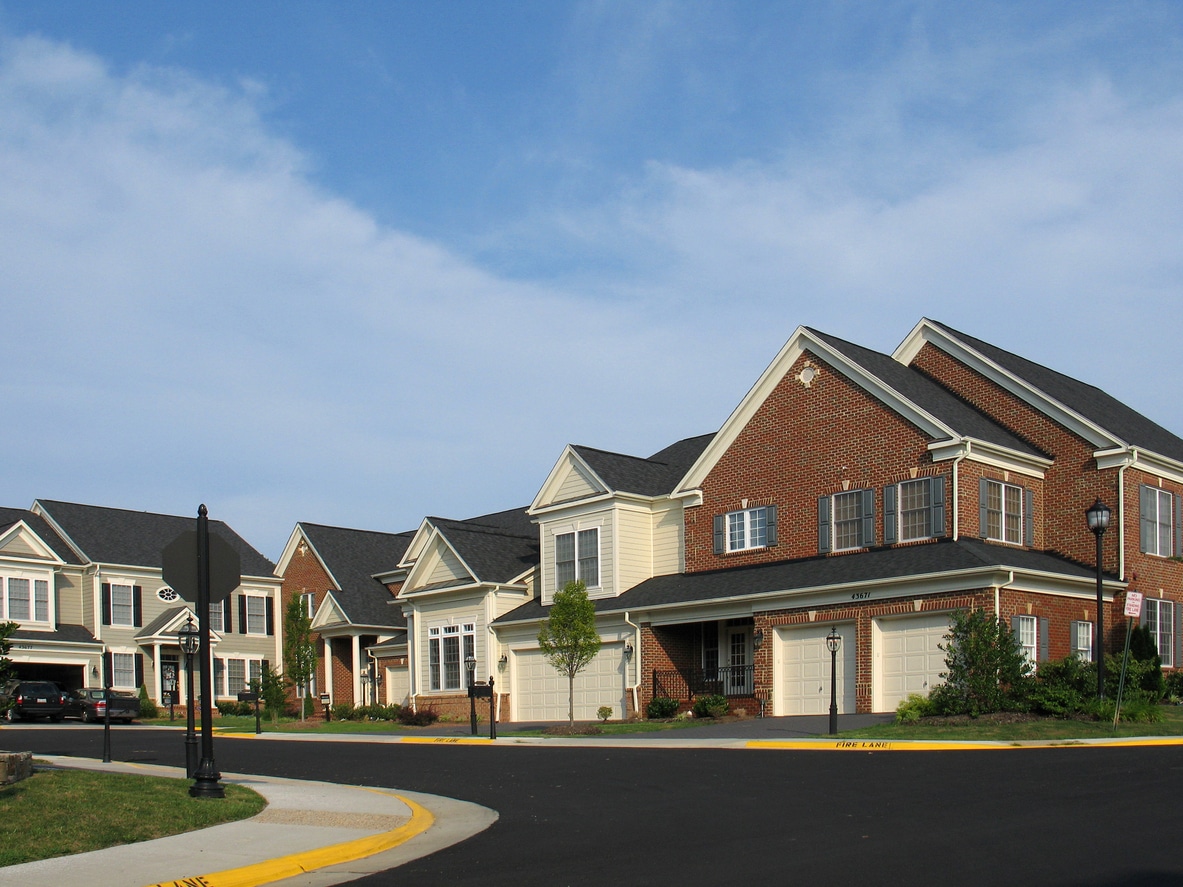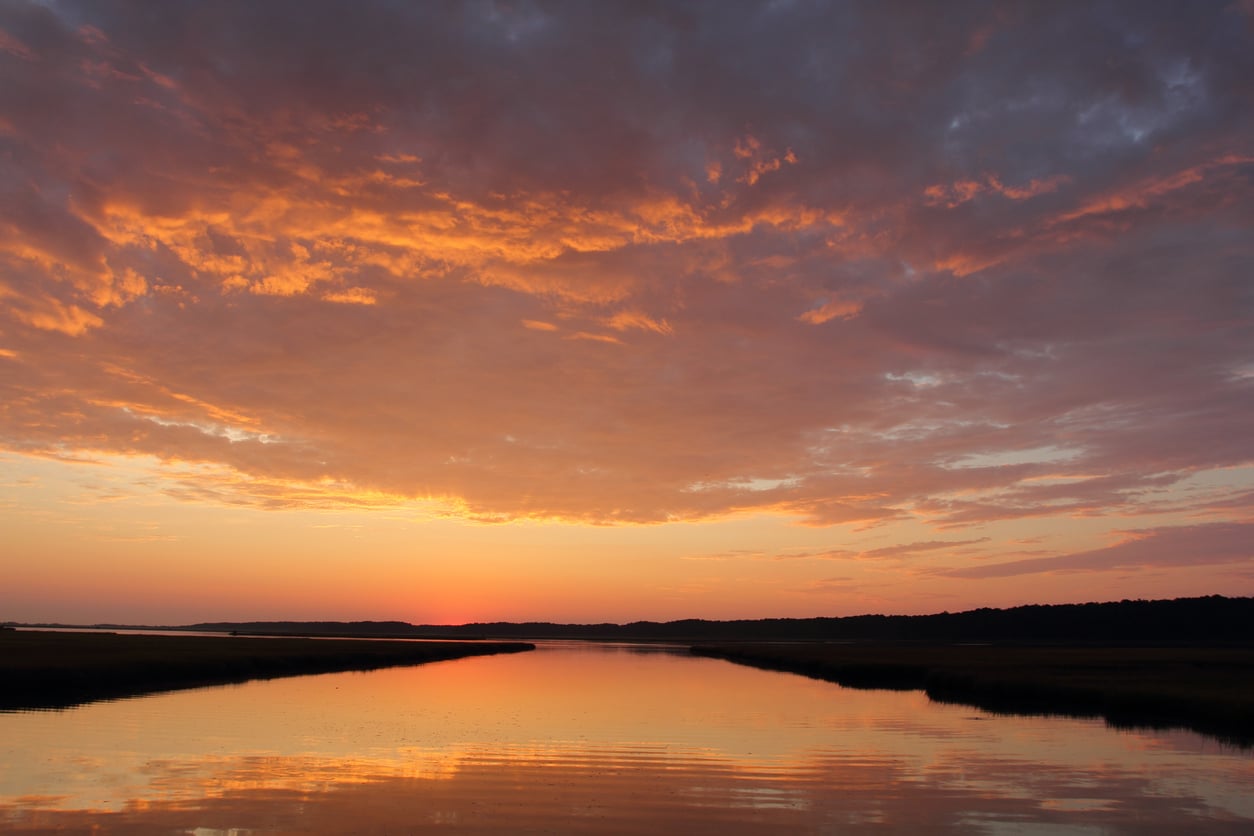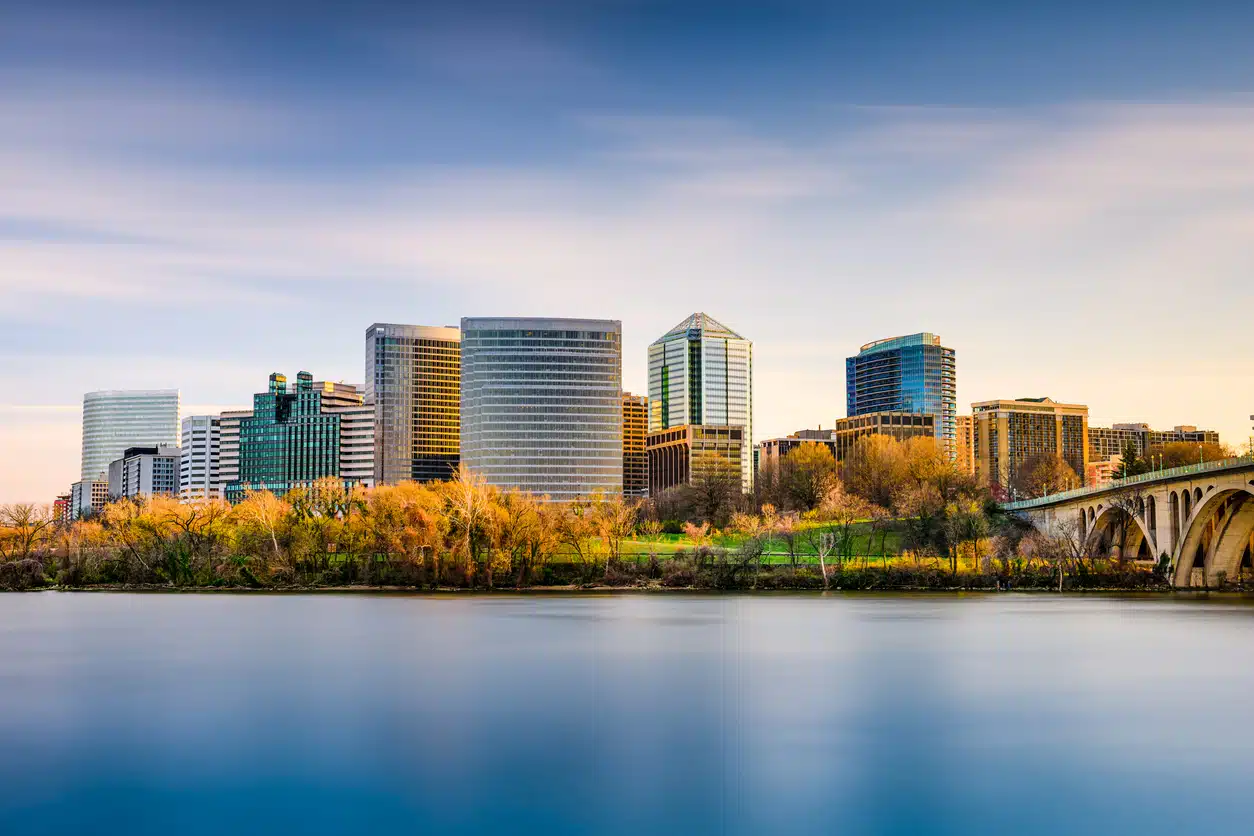With its deep historic roots, vibrant natural landscapes, strong economic forecast, and proximity to the nation’s capital, there’s so much to love about Virginia. (and not just because of its iconic “Virginia is for Lovers” tourism slogan, which dates back to 1969!).
The Commonwealth of Virginia was officially established in 1776—and almost 250 years later, it still remains a desirable spot to call home. If moving to Virginia is on your radar, this guide has you covered with the ins and outs of what to expect.
According to recent U.S. Census data, Virginia welcomed about 95,500 new residents over a 12-month period in 2024. These transplants came from as close as Maryland or Washington D.C. and as far away as California. There’s no shortage of reasons to move to Virginia, but whether you jump state lines or you’re moving cross-country, the decision to relocate is always a major undertaking with several factors to consider.
So, before you book your move and divine into our packing tips for moving, let’s discuss both the pros and cons of living in Virginia. From the seasonal climate and job market, to the median home values and rental prices, to the cost of living in Virginia and the most fun activities or attractions to explore, here’s all you need to know about starting a new chapter in The Old Dominion State.
Living in Virginia: Quick Facts
Population: 8,887,700 (0.9% increase)
Median Age: about 39 years old
Cost of Living: same as the national average
Median Household Income: $90,974
Average Home Value: $400,200
Average Cost of Rent: $1,700
Fun Fact: Virginia is the birthplace of eight U.S. presidents — more than any other state. This includes George Washington, James Madison, Thomas Jefferson, James Monroe, John Tyler, William Henry Harrison, Woodrow Wilson, and Zachary Taylor.

9 Things to Know Before Moving to Virginia
The tranquil shores of Chesapeake Bay, the Civil War battlefields of Fairfax, the lush mountains and rivers of Shenandoah, the accessible commute to Washington D.C. — these are just a few reasons to move to Virginia. But long-distance moving is no small feat, so here’s what to keep in mind before loading up the truck and moving to Virginia.
1. The cost of living in Virginia is on par with the national average
The cost of living in Virginia doesn’t look too different from the national average. Healthcare, housing, and utilities cost slightly more in Virginia, but other basic necessities like food, clothes, and transportation cost less.
Affluent areas such as Alexandria or Arlington are considerably more expensive than other parts of the U.S. (30% and 36% higher, respectively) — but that’s an exception, not the norm. For instance, a family of four can live comfortably in Richmond with an annual salary of $223,974 versus $355,430 in Arlington.
If you plan on moving here from a state with a notoriously steep cost of living, such as New York or California, you’ll find Virginia to be extremely affordable. Case in point: a family of four needs $366,829 to live comfortably in San Francisco and $306,093 in Manhattan. Compare that with $212,826 in Norfolk, $230,048 in Chesapeake, and $236,122 in Virginia Beach.
While continued inflation has caused some prices (housing, in particular) to increase, Virginia is still cheaper than many other parts of the country, making it an attractive destination.

2. Living in Virginia is a more affordable option than living in Maryland
Since they’re both on the doorstep of Washington D.C., these two states are often compared to one another.
But here’s what you need to know about living in Virginia versus Maryland: Virginia is more affordable. Maryland has one of the nation’s heaviest tax burdens at 8.25%, while Virginia’s is considerably lower at 6%.
The average home value in Maryland — about $425,690 — is also more expensive than what you’ll find in Virginia. The median cost of an apartment rental in Maryland is lower at $1,580 as opposed to $1,700 in Virginia, but when you factor in other expenses, Virginia still comes out cheaper. The cost of living in Richmond is 5% lower than Baltimore, for instance. So, if you’re on the fence about living in Maryland versus Virginia, chances are, the Old Dominion State will be a more economical option for your budget.
3. Virginia’s weather and climate will expose you to all four seasons
One of the main benefits of living in Virginia is the mild, temperate climate, which reflects all four distinct seasons. The winters are cold with about 14 inches of snow and average temperatures between 25 and 35 degrees. Meanwhile, the summers are humid with temperatures between 85 and 90 degrees. You can expect 205 days of sunshine and 44 inches of rainfall per year — but keep in mind: Virginia is also moderately susceptible to extreme weather patterns such as blizzards, flash floods, hurricanes, tropical storms, or tornadoes.

4. The crime rate in Virginia is much lower than the national average
Virginia has a relatively low crime rate — around 16.59 property crimes and 2.36 violent crimes per 1,000 residents. Both these estimates fall below the national average of 19 property crimes and 4 violent crimes per 1,000 residents.
Your chances of suffering a violent crime in this state are one in 423, while your chances of being the victim of a property crime are one in 60.
Of course, some areas are more secure than others. Here’s a quick rundown of the safest cities in Virginia and the cities where crimes will most likely occur.
Safest parts of Virginia
Buena Vista
Bridgewater
Purcellville
Dangerous parts of Virginia
Newport News
Portsmouth
Petersburg
5. Virginia’s housing and rental markets have started to increase
Virginia isn’t the most expensive state to buy a home in, but it’s not the cheapest either. Home values in the current Virginia housing market are about $400,200, on average — a 4.1% increase from 2024 and well above the national average of $361,263.
But before you write off the possibility of being able to afford living in Virginia, consider that houses usually cost around $425,690 in Maryland, $485,930 in New York, $605,880 in Washington D.C., and $788,920 in California. Bottom line: it’s more feasible than you might think.
If you would prefer to rent a home in Virginia, the median cost of a one-bedroom apartment is $1,700 per month. This price could fluctuate based on where you choose to move, though. For instance, renting an apartment in Arlington will set you back around $2,400 per month, while an apartment in Richmond will only cost $1,580 per month. The cost of living in Virginia has caused the housing and rental markets to inflate, but many cities are still affordable.
6. The Virginia economy has a robust job market with exciting careers
The Virginia economy is full of career opportunities with 228,000 jobs and an unemployment rate of 3.2% (below the national average of 4.2%). There’s also a wide variety of industries to choose from like finance, manufacturing, education, healthcare, agriculture, real estate, information technology, and aerospace. Given its close proximity to Washington D.C., many Virginians work in local, state, or federal politics as well.
On average, the annual salary in Virginia is about $60,820 (or $29 per hour). On the low end, the median household income you’ll need to live comfortably in Virginia is around $62,380, but in more expensive cities like Arlington, that number could be as much as $140,220.
Your earning potential in Virginia is more than many Southern states like Florida, Georgia, and the Carolinas. You can earn more in states like Maryland — but keep in mind: the cost of living is steeper there, so that trade-off might not be worth it.
7. The best places to live in Virginia offer selling points for everyone
228 cities and towns make up the Commonwealth of Virginia — that’s a ton of ground to cover, so how do you choose the right location to put down roots? Consider which vibe you’re looking for. Do you want an urban center teeming with business, culture, and entertainment? Or would you prefer a suburban community that’s close to the action but quiet, safe, and peaceful enough to raise a family? How about an enclave steeped in nature for easing into retirement? Whatever your vibe, here are three of the best places to live in Virginia.
Arlington: Best for families
With its low crime rate and top-notch school district, Arlington is an excellent place for families to thrive. Nestled on the Potomac River, this city offers outdoor recreation for explorers of all ages, from nearly 50 miles of multi-use trails to lush waterfront green spaces such as Gravelly Point Park and Potomac Overlook Regional Park.
Arlington is also less than a 20-minute commute to Washington D.C., so families can easily access the world-famous museums, diverse cultural exhibits, historic monuments, and other enriching activities in the nation’s capital.
Charlottesville: Best for retirees
Tucked into the Blue Ridge Mountain foothills, about 30 minutes from Shenandoah National Park, Charlottesville is an idyllic choice for retirees moving to Virginia. This picturesque town offers serene mountain vistas with rolling vineyards, home to more than 40 charming wineries for a leisurely afternoon, while the quaint Downtown Mall bustles with local boutiques, music venues, art galleries, and farm-to-table eateries. Charlottesville is also known for the University of Virginia’s healthcare system, one of the best medical centers across the U.S.
Richmond: Best for young professionals
If you’re a professional who wants both the ease of urban convenience and the thrill of a trendy entertainment scene, look no further than Richmond. As the capital of Virginia, this city boasts a strong financial district with nearly 80,000 jobs.
You’ll also find an innovative startup culture in neighborhoods like Monroe Ward, which serves as a hub for tech entrepreneurs and creatives, thanks to its close proximity to the Richmond Arts District. Plus, this city’s walkable streets and accessible public transit are ideal for work commutes and after-hours nightlife.

8. You can choose from a wide range of fun activities to do in Virginia
Living in Virginia is totally worth it, thanks to a phenomenal entertainment scene with outdoor recreation, cultural exhibitions, historical attractions, and other unique, immersive experiences that you won’t find anywhere else.
Whether you’re in the mood for relaxation or adventure, here are some of the most fun activities to do in Virginia.
Immerse yourself in Shenandoah National Park’s 200,000 acres of waterfalls, hiking trails, and spectacular Skyline Drive.
Discover the enormous underground formations of Luray Caverns, the largest cave network in the eastern United States.
Experience the fresh-caught seafood, oceanfront boardwalk and 38 miles of pristine golden-sand coastline in Virginia Beach.
Attend the annual wild pony swim festival on Chincoteague Island, which has taken place each summer for the past 100 years.
Check out the roller coasters, animal exhibits, live performances, and other exhilarating attractions at Busch Gardens Williamsburg.
Step back in time and explore George Washington’s preserved Mount Vernon estate and expansive grounds on the Potomac River.
Tour the local vineyards, then savor a glass of chardonnay while overlooking the mountains on the scenic 25-mile Monticello Wine Trail.
Kayak or paddleboard on the James River with scenic views of Downtown Richmond, or boost the adrenaline with whitewater rafting.
Catch a live outdoor musical show or jazz concert in a natural amphitheater at Wolf Trap National Park for the Performing Arts.
Explore almost 50,000 diverse pieces of artwork across millennia of global history at the Virginia Museum of Fine Arts in Richmond.
9. You have 60 days to get a driver’s license after moving to Virginia
All new Virginia residents must obtain a legal state driver’s license within the first two months of living here. Make sure to indicate that you want a REAL ID, which is required for all domestic flights as of May 7, 2025. Then, once you secure your driver’s license, follow these next steps to inspect, title, insure, and register your vehicle.
Find a local maintenance shop to conduct a vehicle safety inspection, then place a valid safety inspection sticker on the car windshield.
Obtain a title certificate with your name as the legal owner and relevant information such as the make, model, year, and vehicle identification number.
Schedule an emissions inspection if your vehicle does not have an emissions certificate from within the past 12 months.
Make sure that your current vehicle insurance provides the minimum amount of liability coverage, as required by the state.
Update your vehicle plates and registration, then confirm whether you live in an area that mandates a local sticker or decal within 30 days of moving there.

Pros and Cons of Moving to Virginia
There’s no shortage of reasons to move to Virginia — but as with any state, it has some potential drawbacks as well. Let’s discuss the main pros and cons of living in Virginia to help inform your decision (but as you can see, the benefits of living in Virginia outnumber the cons!).
Pros of living in Virginia
The natural scenery and historic landmarks are spectacular.
The economy is brimming with vibrant career opportunities.
The proximity to Washington D.C. allows for a seamless commute.
The climate exposes you to all four distinct seasons.
The crime rate is considerably below the national average.
The activities and entertainment will offer something for everyone.
The cost of living in Virginia is more affordable than many other states.
Cons of living in Virginia
The housing and rental markets are becoming more expensive.
The weather can be intense during certain times of year.
The cost of living might be higher based on the city you choose.
The average salary is lower than some nearby states like Maryland.
Start Your New Chapter in Virginia with Colonial Van Lines
If breathtaking nature, fascinating history, and a booming job market are your thing, and you’re not put off by the increase in home values, then moving to Virginia is worth it. And if you’re from a state with an extreme climate or expensive cost of living, you’ll feel even more at home in the Commonwealth.
When it’s time to embark on your new chapter, let Colonial Van Lines help. With over 50 years of long-distance relocation experience, we handle all the logistics to make your move as smooth as possible. Contact us for a free quote today!

